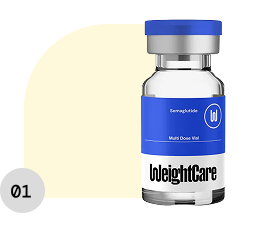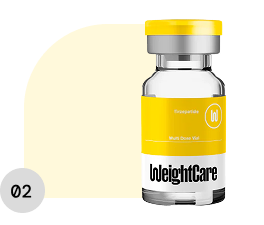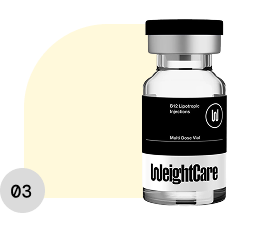So, you’ve started your GLP-1 journey—whether it’s semaglutide or tirzepatide—and let’s be real, it’s a huge step. The promise of weight loss and better health is exciting, but getting started?
Well, that can feel like a whole different story. From dealing with injections (yes, they’re intimidating at first!) to figuring out how to eat on this new plan, there are bound to be bumps along the way.
But here’s the good news—you’re not alone, and it does get easier. Let’s walk through some of those common struggles together, with a little help from people who’ve been there and have come out stronger (and lighter!) on the other side.
The Injection Intimidation: Everyone's Been There
Let’s start with the elephant in the room—the injections. For many of us, the idea of sticking a needle in ourselves is downright scary at first. There’s no sugar-coating it. The anxiety, the overthinking, even a little hesitation before you go for it—that’s totally normal.
From Alexis P.:
"I remember sitting there for like 20 minutes just staring at the needle the first time. My hands were shaking, and I almost backed out! But honestly, after a couple of weeks, I was doing it without a second thought. Now, I look back and laugh at how scared I was. It’s just like brushing my teeth—no big deal!"
Friendly Advice:
Trust us, you’re going to get used to it. Most people, after the first few tries, realize it’s not nearly as bad as they thought. Plus, the needles are super thin and barely hurt at all. In fact, you’ll probably be surprised how quickly you go from nervous to confident. And before you know it, you’ll be rolling your eyes at the fear you once had.
The Nausea and How to Tame It
Okay, let’s talk about nausea. It’s one of the more common side effects when starting GLP-1 meds, and it can really throw you for a loop. Some people feel queasy just thinking about food, while others find certain meals suddenly don’t sit right.
From Sara B.:
"Ugh, the nausea in the beginning was rough. Mornings were the worst, and I was constantly trying to find something that didn’t upset my stomach. But after a few weeks, it really calmed down, and now I don’t even notice it."
Here’s What Can Help:
- Ginger Everything: Ginger tea, ginger chews, ginger anything—it’s your friend. A little ginger can do wonders to soothe your stomach.
- Small Meals: Try to eat small, light meals throughout the day instead of heavy, greasy ones. Your body’s adjusting, and sometimes less is more.
- Hydration Is Key: Drink plenty of water, but avoid chugging it all at once. Sipping slowly throughout the day helps with nausea too.
Hang in there! For most people, the nausea doesn’t last long, and once your body adjusts, you’ll be able to enjoy your meals again—minus the over-eating.
Eating Less: It's a Big Change, But You’ll Adapt
One thing that surprises a lot of people is just how much less food they feel like eating. GLP-1 medications reduce your appetite, but it can take time to adjust mentally. You might feel strange about not finishing your plate or feel unsure how to balance nutrition with smaller meals.
From Dawn D.:
"I was always a big eater, so when my appetite dropped, it was a weird feeling. I had to remind myself that it’s okay not to eat a full meal. It took some adjusting, but now I know what my body needs, and I don’t miss overeating at all."
Your New Normal:
- Focus on Nutrients: Since you’re eating less, it’s important to make sure what you do eat is packed with nutrients. Think high-protein, high-fiber meals that fill you up and keep you satisfied longer.
- Meal Prepping Can Help: It might sound fancy, but meal prepping can be as simple as planning your snacks and small meals ahead of time. That way, you don’t feel like you’re guessing about what to eat.
Keeping Motivation High: Slow Progress is Still Progress
Let’s be honest—some days are tougher than others. It’s easy to feel super motivated when you’re just starting out, but what happens when the initial excitement fades? Or when the scale isn’t moving as fast as you’d hoped?
Testimonial from Kimberly C.:
"There were days when I felt like, ‘Is this even working?’ I wasn’t dropping weight fast enough for my liking, and it made me doubt everything. But then I hit my first real milestone, and it was like, ‘Wow, I really can do this.’ It takes time, but it’s so worth it."
Keep These Tips in Mind:
- Celebrate the Non-Scale Victories: Maybe your clothes are fitting better, or you have more energy. Those wins are just as important as what the scale says!
- Stick to Your Routine: Trust the process and keep taking your meds, eating well, and staying active. The results will come in their own time, and when they do, they’ll be lasting.
- Build a Support System: Whether it’s a close friend, family member, or an online community, having people to talk to about your ups and downs can make a world of difference.
The Bottom Line
Starting GLP-1 medications can feel like stepping into the unknown, but with each passing day, you’ll find your rhythm. The injections? You’ll laugh at how scared you once were. The nausea? It’ll fade, and you’ll barely remember it. The appetite changes? Soon, they’ll just feel like your new normal. And as for motivation, just remember—slow progress is still progress, and you’re doing something incredible for your body.
You’ve got this, and you’re not alone on this journey. Keep going!



